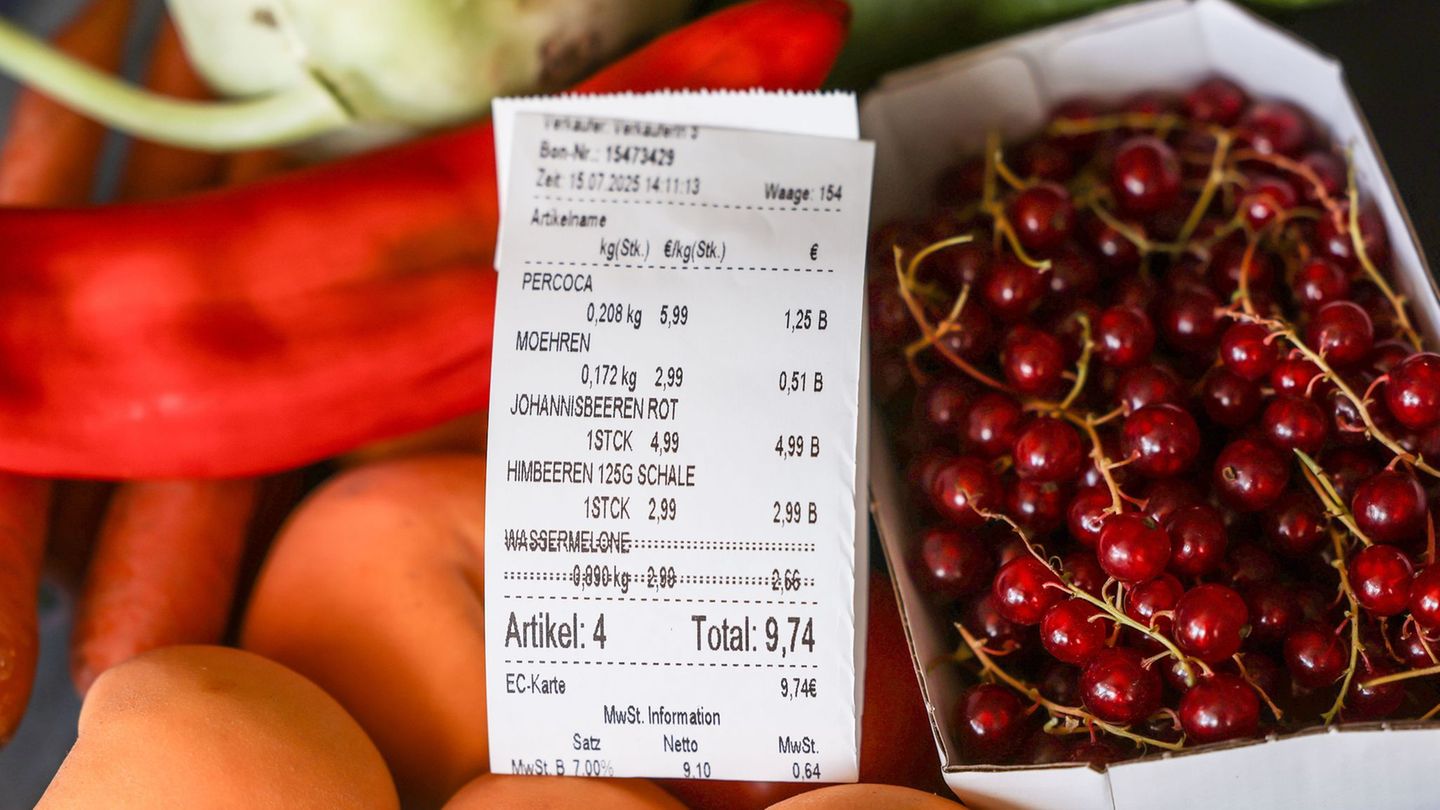Inflation rate
Consumer prices will also increase by 2.0 percent in July
Copy the current link
Add to the memorial list
Life in Germany was just as expensive in July as in June. According to economics, the wave of inflation is over. But the latest numbers have a blemish.
Favorable energy, but increasing food prices: On average, consumer prices in Germany in July with 2.0 percent in the same month as in the previous year as in June of the current year. The Federal Statistical Office confirmed preliminary calculations. According to the Wiesbaden authority, prices rose 0.3 percent from June to July.
“The inflation rate has stabilized since the beginning of the year and remained unchanged again for two months in a row,” the President of the Federal Statistical Office, Ruth Brand. According to economists, the wave of inflation of the past few years, in which the inflation rate at the top was almost nine percent, has expired.
However, the so -called core inflation – i.e. the rate without the prices for food and energy that is prone to fluctuation – is increased unchanged with 2.7 percent.
The daily purchase has become more expensive
The price increases for food fell slightly larger in July than in June. Fruit (plus 7.6 percent), sugar and confectionery (plus 5.6 percent) as well as dairy products and eggs (plus 4.1 percent) were more expensive than a year earlier. For example, chocolate was increasingly increased by 18.6 percent. Vegetables, on the other hand, were 3.2 percent cheaper, potato prices were 16.1 percent below the level of July 2024.
According to calculations by the Wiesbaden statisticians, energy was 3.4 percent cheaper than a year earlier in July. This dampens the inflation rate. However, the difference in the months before was even greater. In July 2025, the prices for fuels decreased by 4.5 percent in July 2025. Fuels such as heating oil (minus 5.0 percent) and wood pellets (minus 5.3 percent) were also cheaper for consumers. Electricity prices were 2.0 percent below the level of the previous year.
Prices for services continue to increase above average
The inflation of services for which people in Germany have to pay more persists because of increased wages, among other things, than a year ago. In July, services were 3.1 percent more expensive than a year earlier. After all, the price survival in this area, which was still 4.0 percent at the beginning of the year, weakened.
Economists expect inflation rate around two percent in the year as a whole
For the whole year, economists expect an inflation rate of around two percent for Europe’s largest economy. At 2.0 percent inflation, the European Central Bank (ECB) sees its goal of stable prices and thus a stable currency for the euro area as a whole. Permanently low prices, as well as too rising prices, are a risk of the economy: Companies and consumers could postpone investments in the expectation that it will soon become even cheaper.
In 2022, inflation in Germany was 6.9 percent sneaked, in 2023 it was 5.9 percent. After the Russian attack on Ukraine in February 2022, the prices for energy and food had climbed suddenly. In the past year, the inflation dropped to 2.2 percent. The higher the inflation rate, the lower the purchasing power of the people.
dpa
Source: Stern




